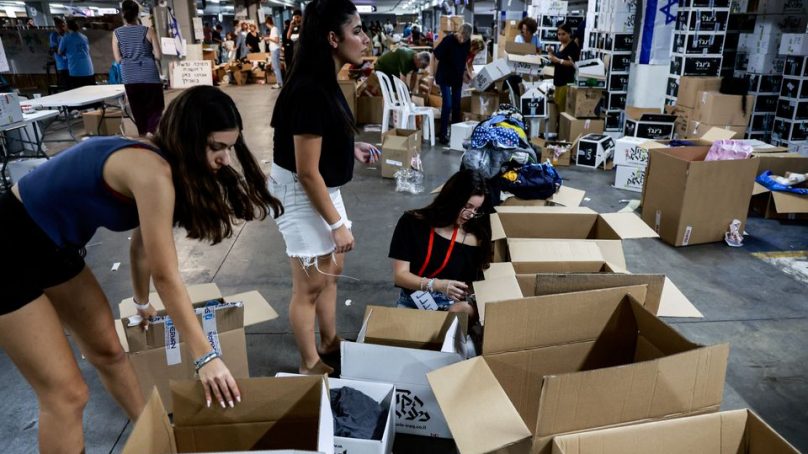
Two weeks ago, retired helicopter pilot Guy Poran, 67, was leading a group of Israeli pilots in a protest against Prime Minister Benjamin Netanyahu’s plans to curb the powers of Israel’s highest court.
Now, after the Gaza-based Palestinian Hamas militant group killed some 1,400 people on Israeli soil, Israeli reservists operating under the name Brothers in Arms who have halted their protests and who have not been called to serve in the military for the war have mobilised to help victims and survivors.
They have delivered meals to survivors uprooted from their homes, collected money to buy body armour and helmets for soldiers and, in one case, launched an initiative to milk cows abandoned in farms evacuated after the October 7 attack.
“Everything that theoretically, the government should have done was initially organised by the protest movements,” Poran said.
Public anger at the multiple military and intelligence failures that allowed Hamas to overwhelm Israel’s defences has been held back by the solidarity aroused by images of Hamas gunmen rampaging through communities, leaving a trail of dead.
Even as volunteers work around the clock, they remain angry with Netanyahu, who has yet to follow the example of his military and intelligence chiefs in accepting responsibility for the failure to protect Israelis from the brazen assault.
“The man is a dead man walking,” Poran said. “These things are a level of negligence that, regardless of anything that he has done over the past 10 months, they will justify his departure.”
The judicial overhaul plans, promoted by Netanyahu’s religious-rightist government as an overdue check on the powers of activist judges encroaching on politics, drew hundreds of thousands of protesters who saw them as an existential threat to Israeli democracy.
Thousands of military reservists said they would refuse to report for normal duty, creating fears in the military that Israel’s security would be compromised.
Major E, an intelligence officer who did not wish to be identified for security reasons but organised a group of reservists who signed a petition not to serve, said even those who signed the petition had heeded the military’s call.
“They said that if Israel will be in some existential threat, under an existential threat, that then they will return and this is exactly what they did.”
- A Reuters report










